“Continuous personal and professional development is your key to the future” — Brian Tracy
In modern-day, continuous mastering and self-improvement in all regions of existence are surely crucial to excelling in your profession. In this manner in case you hold a profession or personal-related goals and that purpose gives you actual happiness, a professional development plan can be the key to remodeling your desires into reality.
A current survey revealed that two-thirds of employees prefer that the most essential policy of their place of job is the chance to analyze new talents, schooling, and development possibilities presented via the enterprise. And professional development plan is a manner to benefit greater enjoy and improve your skills inside the place of business. You can set character dreams or come collectively along with your team to decorate your skills.
In this article, we are able to talk about the basics of a professional development plan (PDP), highlighting its several benefits. Moreover, we will offer a complete, step-by-step guide to empower you to create your customized success roadmap.
Let’s get started!
Read more: 120 Dream Job Affirmations to Secure Your Professional Path
Table of Contents:
- What is Professional Development Plan
- Why is Professional Development Plan Important
- 11 Benefits of Professional Development Plan
- Types of Professional Development
- Professional development examples
- 7 Ways to Set and Achieve Professional Development Goals
- Top 9 Books For Professional Development
- Quotes on Professional Development
What is Professional Development Plan?
It refers to a non-stop procedure of acquiring and enhancing the new skills, expertise, and talents essential to excel in a career. It includes intentional and proactive efforts to improve and stay up to date with quality practices and advancements.
The primary reason for professional development is to enable people to carry out their present-day roles extra correctly while at the same time getting ready for possibilities and challenges.
There are several opportunities and resources available for professional development:
- Enrolling in relevant postgraduate qualifications to gain advanced knowledge in your area of interest.
- Registering for courses that are relevant to your profession.
- Pursuing professional certifications in your field.
- Participating in seminars or conferences that provide opportunities for exposing you to new ideas and innovations.
- Keeping yourself informed by reading books, self-directed learning, blog posts, and industry publications, helps you stay updated.
- Engaging in mentorship programs, where experienced professionals can guide and support your career growth.

The maximum suitable kind of development will rely on your preferred profession and the company you’re employed in.
For example, a developer might choose to study a new coding language to increase their skill set, even a marketer could attend conferences to advantage of insights from enterprise professionals. By learning these activities, experts can actively form their career adventures and stay up to date with the hastily evolving needs in their respective fields.
Professional development isn’t always restricted to technical capabilities; it builds management skills, communique prowess, the art of public speaking, and trouble-solving abilities.
Many industries require white-collar to engage in persistent education as a circumstance for maintaining their employment or maintaining their designation, license, or certification. Professional development plans, also called individual professional development plans, even if a job doesn’t have it as a requirement. It can help people get where they want to go professionally in any field by achieving key career goals.
Why is Professional Development Plan Important?
Professional development is of different value to employees who aspire to be experts in the marketplace. It opens the door to promotions, enhancing their qualifications and attractiveness as candidates. No matter the industry, investing in high-quality career development offers significant advantages. It makes you a more respectful and valuable employee and accelerates your career growth. Harvard Business Review found that 95% of employees prefer companies that invest in career development and retention.
Organizations reap the rewards of a competent workforce that is provided to thrive in an ever-changing business environment. Investments in ongoing education benefit both employees and employers and support a motivated and adaptable workforce.
It ensures that instructional and sensible credentials remain contemporary and applicable. Regardless of age, vocation, or traditional qualification, people can continuously improve their abilities. Pew Research indicates that 47 percent of employees say they will need ongoing training throughout their careers.
Professional development is important for several reasons:
- Upgrading qualifications, opening doors for career advancements and opportunities.
- Updating your resume with new qualifications and skills increases your marketability.
- Relevent your skillsets with enterprise requirements, making you competitive amongst peers.
- Staying informed in a dynamic business environment.
- Enhancing workplace talents, enabling you to perform higher and contribute efficaciously.
- Providing high-quality service to customers, building trust and loyalty, and raising your reputation in the industry.
Engaging in self-development activities permits you to examine new talents, discover understanding gaps, and develop your career. Nowadays, in an aggressive process marketplace, learning can improve your CV by focusing on in-demand skills. It empowers you to address getting to know gaps systematically.
Being proactive in choosing relevant abilities and expertise gives you greater management over your career course as requirements evolve during your career. Regularly updating your education allows you to live on the course and take the price of your career’s trajectory. It goes beyond being solely a career move; it may additionally be a fun revel in. If you are stuck, obtaining new capabilities can reignite your ardor and reconnect you with the reasons you chose your job initially. Learning will become a supply of inspiration and rediscovery.
11 Benefits of Professional Development Plan

Professional development offers an extensive range of benefits that could positively impact our lives and organizations. Let’s elaborate on some of these advantages in greater elements:
1. Assists you to climb the career ladder
Perfect ongoing training is important for obtaining the understanding you need to ascend the professional ladder. While work experience is required, formal training is invaluable in mastering the strategies required for senior positions. For example, someone with an MBA generally possesses a much deeper comprehension of management theory compared to those who have only on-the-job experience.
2. Increases your knowledge
A various talent set is enormously fine in numerous roles. Professional development plays a pivotal position in obtaining the understanding necessary to grow to be greater versatile and well-rounded. Consider the everyday process description for a WordPress engineer, which involves talent now not best in coding languages like HTML, PHP, and CSS but also in challenging control skills and the ability to navigate an ever-expanding array of page developers and plugins.
3. Builds self-confidence
Embracing professional growth can significantly boost your confidence as an employee. As you expand your skill set and acquire new knowledge, your self-assurance and mastery of your role will naturally increase. Even long-tenured employees will have learned much more compared to when they initially started. This upgraded skillset instills greater confidence in carrying out job responsibilities. Moreover, employees with heightened self-assurance are more inclined to seize opportunities, make well-informed decisions, and display leadership attributes.
4. Develop skills
Based on SHRM’s skills gap research and survey (2019), a full-size 75 percent of HR professionals well know a shortage of abilities among candidates applying for positions. Engaging in career improvement empowers you to enhance each tough and smooth competency in the place of work.
Hard abilities pertain to process-particular understanding received through education or training, whereas smooth abilities embody private habits that influence your work, together with communique and teamwork. Nurturing your skills can position you as a professional for your profession, assisting you to share your understanding with new colleagues and discover promising opportunities for career advancement.
5. Provides you with more work options
It’s important to prioritize your career development to increase your chances of a promotion or promotion in your current role. Demonstrating your commitment to self-improvement can have a significant impact on your rise up the organizational ranks. As your boss notices your dedication to becoming more knowledgeable and effective, they will see you as a proactive and self-motivated person. These developments can help you to get promotions and can establish exciting new career opportunities for you.
6. Makes you more employable
Your ongoing training can make you more employable because you increase your knowledge, skills, and competencies. If employers find you as a qualified candidate who has expanded their skills, they may be more likely to hire you over the competition. Continuous growth and development create a strong and exciting prospect for potential employees.
7. Helps you to stay up-to-date
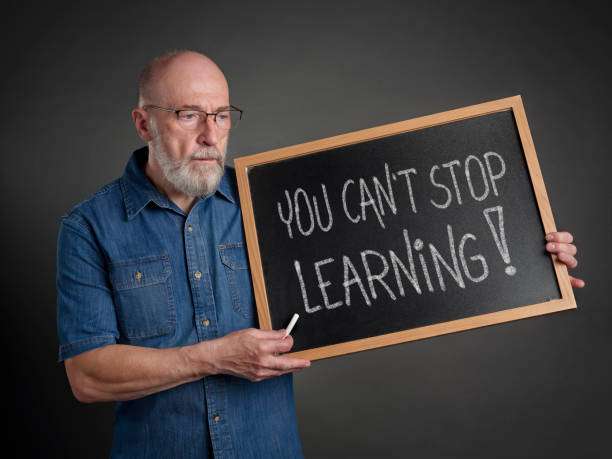
In today’s fast-paced world, technology, and software have become an integral part of almost every industry. Continuous professional development (CPD) is essential to staying relevant in your current role, you may currently have a strong background in the skills required in your field, but new technical requirements may arrive sooner than anticipated.
In the world of rapid scientific advances in the 21st century, the nature of every job is changing rapidly. By prioritizing CPD, you equip yourself with the latest knowledge and skills, keeping you ahead of trends and industry changes that could significantly affect your business.
8. Becomes more applicable for promotions
Participating in continuing professional education shows your boss that you are committed to excelling in your career. When considering candidates for promotion, this dedication can make you stand out in their minds.
For example, Imagine that two candidates are competing for an executive position. One candidate thinks they know everything, while the other acknowledges that there is always room for growth and learning. Hiring managers may be attracted to the second candidate for strategic and managerial reasons, as it reflects a desire for continuous improvement and flexibility, which is characteristic of a showing its value in leadership roles.
9. Connect with people in your field
Participating in career advancements like seminars, webinars, conferences, workshops, volunteer events, and programs allows you to connect with like-minded people on a similar journey.
These events expanding network not only accelerate your business growth but also enable the exchange of ideas and sharing of knowledge with colleagues, mentors, or hiring managers. Mentors and coworkers can guide you on a professional path, the networked collaborative environment enriches your learning experience and opens the door to new opportunities for personal and professional growth.
10. Renew your enthusiasm for your job
For many people, after they leave school, doing the same job can cause boredom and stress. However, through professional learning, you can gain new knowledge and skills that bring new passion and excitement to your job every day. Continuous learning can give your work new perspectives rekindle your passion for what you do, and make for a more enjoyable and satisfying work experience.
11. Growing your earning abilities
Any of the factors mentioned can affect your overall income. Companies prioritize highly skilled and knowledgeable employees because they bring added value to the business. Having multiple skills is a highly sought-after asset when applying for new roles within your current organization or for positions in different industries Your increased skills and abilities set you up for better pay and career opportunities it improves, thus positively impacting your revenue potential.
Types of Professional Development

In today’s workplace, you can access formal and informal professional development activities. These potential studies can be divided into three main categories:
1. Active Learning
Active learning is an instructional approach that involves engaging people in the learning process through active participation, collaboration, and critical thinking. This category includes various methods such as training, workshops, conferences, seminars, lectures, e-learning courses, and more. This list of programs includes assessments and tests designed to enhance employee performance.
2. Passive Learning
Passive learning is a self-directed or passive approach, with minimal interaction between trainers and learners. These learning activities such as listening to podcasts, reading context, and researching case studies. It can provide some knowledge and understanding, but generally lacks depth and what it preserves as active learning methods provide.
To maximize professional development, it is useful to incorporate passive learning with active learning strategies such as discussion, problem-solving activities, self-reflection, and hands-on experiences. A balanced approach can lead to more meaningful outcomes.
3. Self-study
Self-learning for personal development is the process of learning and improving oneself independently without formal instruction or external guidance. This requires a commitment to explore, research, and acquire knowledge or skills in areas that interest align with their personal goals.
Self-learning for professional growth can take various forms, e.g.
Reading books, articles, and blogs in your career. To apply knowledge gained through exercises, projects, or real-life experiences. Creating words to document ideas, experiences, and insights. Conduct independent research on specific topics to gain in-depth knowledge.
Professional development examples
Your skills development can take many forms, some of which are given here. The most appropriate method you can consider when creating your career path is you rely on your objectives.
Develop a new workplace skill: Workplace skills also known as soft skills, play an important role in building effective cooperation among colleagues. For example, enroll in an online course that focuses on communication skills, negotiation, time management, and a positive mindset.
Take online courses:

Many organizations offer flexible continuing education courses that can be easily taken from home. By learning online, you can boost your skills and excel in your current position. Looking for structured courses offered by popular platforms like Udemy, Coursera, Masterclass, Skillshare, FutureLearn, etc. These platforms offer a variety of courses that address professional development needs. Enrolling in such courses can be a valuable investment in your career development and lifelong learning journey.
Attend workshops and seminars: Seminar offers excellent networking opportunities, with industry experts exchanging interesting knowledge and experiences. If attending meetings for you isn’t possible, you can explore several online conferences and webinars. You can also attend talks where experts from different fields share valuable insights and solutions. Unlike most conferences, workshops provide active engagement, allowing attendees to actively participate and gain rewarding experiences. Attending workshops can greatly enhance the acquisition of new skills.
Do some research: Research and analysis are not limited to scholars. Find something in your industry that interests you, analyze it, or experiment, then share your findings with your peers.
Join meetings and conferences: Meetings keep you abreast of the latest industry developments, best practices, and thought leaders. Being part of a professional association provides access to resources, networking opportunities, and events relevant to your career.
Read a book: Reading a book on self-development or in your specific field is a useful way to improve your professional performance. There are many books out there, but if you’re unsure about what to read you can always ask for suggestions from your colleague or mentor.
Watch your coworkers: The opportunity to observe colleagues and managers on interesting projects can be very rewarding. By observing these entrepreneurs, you can gain insight into their genuine passion for their work and better understand what makes them successful. This program allows you to learn from their experiences and identify areas of interest that are related to your career aspirations.
Ask for feedback: Getting involved in professional development is easy to get feedback from a person you work with, including superiors, colleagues, and subordinates. Feedback provides you with a convenient quick and cost-effective way to focus on your business goals.
For example, aspiring managers can regularly ask their team members, “What areas do you think I need to improve the most?” It allows for continuous improvement and can address any blind spots. According to the Harward Business Review, feedback is more than just implementation. Feedback from multiple channels can provide valuable insights that help grow your career.
Find a mentor: After all, the impact of person-to-person training is incomparable. Contact an experienced career coach who supports you in developing a robust plan for overcoming career challenges. Building these mentoring relationships provides excellent opportunities for personal and professional growth, as you can gain valuable insight, guidance, and advice from experienced people. If it makes sense, approach somebody in your workplace that you think you’ll be able to learn from.
7 Ways to Set and Achieve Professional Development Goals

1. Create a Routine
To begin your professional development journey, start by creating a list of well-structured plans. With a clear plan, you can set a timeline for growth and track your progress, increasing productivity. You can use an agenda, online app, or journal to better organize your schedule. Think about adding the following schedule:
- Learn new skills related to your job or industry.
- Do a specialized training program or certification to enhance your skills.
- Join meetings or conferences to get the latest news and developments.
Establishing these objectives will help map the development path and identify areas where improvement is needed. Visualizing the results will give you the motivation you need to stay focused and committed to these things.
2. Assess the Workplace Needs
Assess the workplace’s needs identifying the skills, knowledge, and behaviors to improve employee performance. You can start by conducting a comprehensive analysis to identify skill and knowledge gaps in your workforce. It can be done through surveys, interviews, focus groups, and performance evaluations.
Understand the results in particular areas where employees need improvement. Look for performance data such as performance specifications, quality of work, and customer feedback to identify patterns. Plans should specify the specific skills to be acquired, the resources available for development, and the timeline for achieving their goals.
3. Set Smart Goals
Once you’ve evaluated what your workplace needs, now set a goal. Professional development is more manageable when you set specific goals and do your activities accordingly with your aspirations in mind. The reason for career advancement may be to hire a new job, get a promotion, transition, or excel in your current job. Identify the best steps to achieve your goals.
Keep in mind speaking with your boss at your current company to gain valuable insight. Understand the qualities they are looking for in candidates. If your ideal position is outside of your current organization, study job postings and identify areas for improvement focus. By setting specific goals and focusing on the right areas, you can ensure your professional development matches your ambitions and delivers you on a successful and satisfying career path.
4. Keep Focus Your Mind
When you are serious about achieving new short-term and long-term goals, it’s important to minimize distractions because if you lack focus your written plan won’t help you. The key to your success all comes down to your focus. Activities such as reading books or attending classes require uninterrupted concentration to fully comprehend and retain knowledge. Research shows that people who are often distracted by instant messaging perform significantly worse than those who are able to maintain focus.
Distraction not only hinders learning, but it can lead to harmful behaviors. Keep your digital gadgets away during the dedicated study time. By focusing your undivided attention on the task at hand, you can maximize the value of learning opportunities and enjoy the long-term benefits.
5. Learn from Others

When you interact with members of other departments or teams you can expand your horizons, gain knowledge of different skills, and see different aspects of an organization’s development. There are lots of rewards to learning from colleagues. It promotes a culture of collaboration and different points of view to better understand the operations of the company, including the diversity of needs, challenges, and resources. This is particularly important if you want to become a leader and make a positive impact.
6. Fix Timeline
When setting goals, consider the nature of your goals, and clearly articulate your goals into four terms (measurable, achievable, relevant, and time-bound). If your main goal is tied to a specific date, break it down into smaller and medium goals so you track progress and stay motivated.
Try a balanced approach that gives you plenty of time to reach your goal and presents enough challenges to spur your progress.
7. Review your Progress
With a structured timeline and clearly defined goals, it’s not difficult for you to review your current position. Professional development plans are essential to assessing your progress towards your stated goals and are a valuable measuring tool for how useful your system is.
At the end of each week and month, take the opportunity to review your contributions to your goals. This chart will help you identify what works best in your system and what may need adjustment.
Top 9 Books For Professional Development

Books can be important for professional development. Here are some reasons why:
It can provide you with the tools and tips you need to develop for your profession. Whether you’re looking to develop new skills, improve existing ones, gain expertise in your field, or develop your leadership abilities, books can be powerful resources.
Books are lots of information and insight. It can provide you with in-depth knowledge of specific topics, industries, or areas of interest. Reading books written by experts and thought leaders can help stay updated on the latest news and developments in your industry.
Many books have been devoted to teaching practical skills. Whether you want to improve your communication skill, tone of voice, time management, problem solving, or technical skills, there are books geared to help you develop these skills.
Reading books inspire creativity and critical thinking can enhance your ability to solve complex problems and think outside the box. Discover new ideas and concepts through books can help your professional life.
It can often tell stories of successful people who have overcome challenges and achieved greatness in their careers. This information can inspire you to overcome your obstacles and strive for excellence in your professional endeavors. And these lessons also save your valuable time.
Reading books that encourage self-care can help you understand your strengths, weaknesses and areas for improvement. This self-awareness can guide your professional development efforts and help you set meaningful goals.
Author – Tom Rath
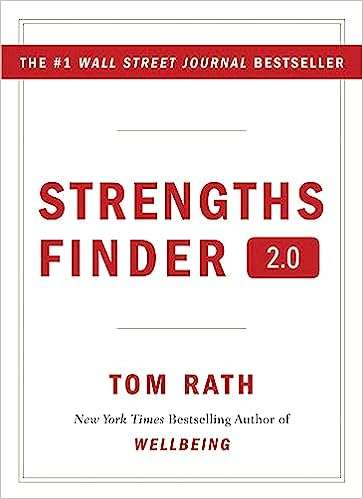
2. The Power of Habit: Why We Do What We Do in Life and Business
Author – Charles Duhigg
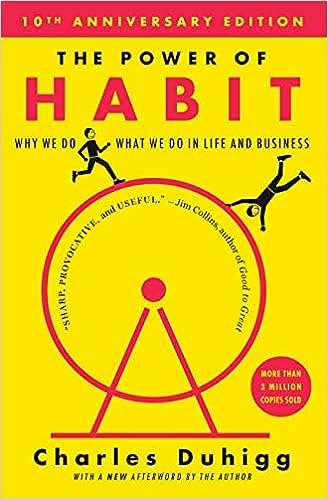
3. The Success Principles: How to Get from Where You Are to Where You Want to Be
Author – Jack Canfield
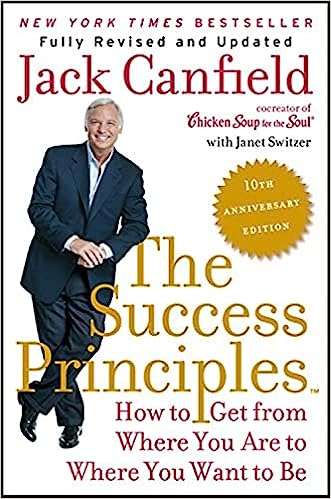
4. Eat That Frog! 21 Great Ways to Stop Procrastinating and Get More Done in Less Time
Author – Brian Tracy
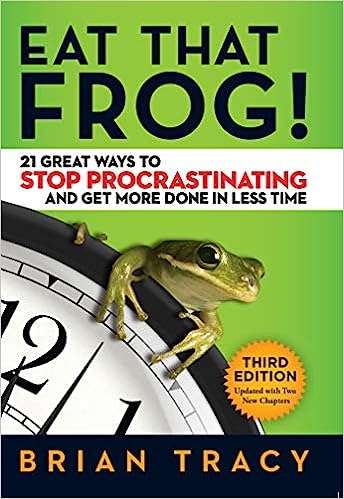
5. The 7 Habits Of Highly Effective People
Author – Stephen R. Covey
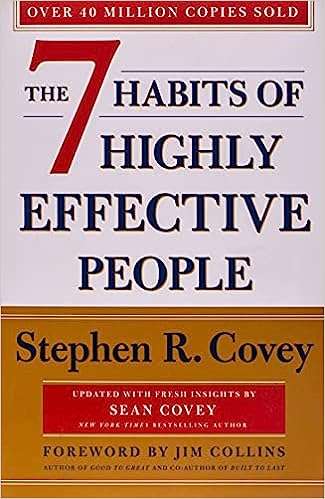
6. The 15 Invaluable Laws of Growth: Live Them and Reach Your Potential
Author – John C. Maxwell
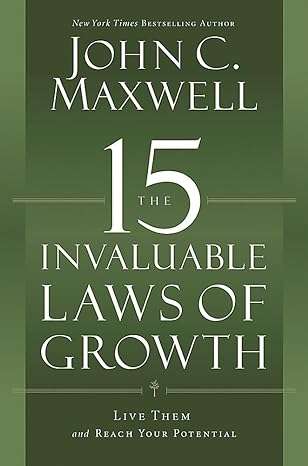
Author – Tony Robbins

Author – Tim Ferriss
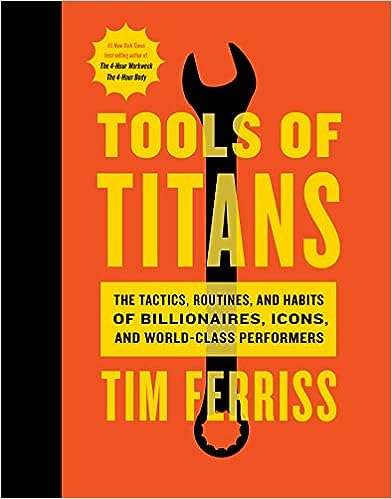
9. Atomic Habits: An Easy & Proven Way to Build Good Habits & Break Bad Ones
Author – James Clear
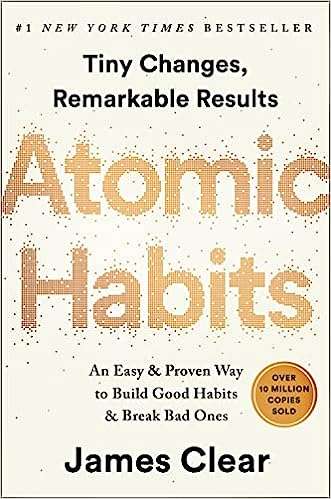
Quotes on Professional Development
1.“You don’t learn to walk by following rules. You learn by doing and falling over.” — Richard Branson
2. “Success is not final, failure is not fatal: it is the courage to continue that counts.” — Winston Churchill
3. “You must a 100 percent of the shots you don’t take.” — Wayne Gretzky
4. “The meeting of preparation with opportunity generates the offspring we call luck.” — Tony Robbins
5. “Education is not the filling of a pot but the lighting of a fire.” — W.B. Yeats
6. “One quality of leaders and high achievers in every area seems to be a commitment to ongoing personal and professional development. — Brian Tracy
7. I want us to continue to scale and grow over the coming years in education, professional development and employment to bring about change in people’s lives. — David Batstone
8. “Choose a job you love, and you will never have to work a day in your life.” — Confucius
9. “It is not what happens to you that determines how far you go in life; it is what you do with what happens to you.” — Zig Ziglar
10. “The difference between great people and everyone else is that great people create their lives actively, while everyone else is created by their lives, passively waiting to see where life takes them next. The difference between the two is the difference between living fully and just existing.” — Michael E. Garber
11. “If knowledge is a power, then learning is a superpower.” — Jim Kwik
Final Thoughts
I hope it will not only help you in your professional development but give you incredible wisdom to reach new heights in both your Professional and personal life.
Related Articles:-
- 1. How to Express Emotion & 7 Ways to Control Negative Emotions
- 2. How Can You Help Others- 10 Surprising Ways
- 3. How Willpower Works and 11 Ways to Prosper It
- 4. 101 Professional Positive Affirmations for Work




Your writing skills are amazing! I really love it! Can you review my website https://www.gdiz.eu.org and maybe you can share tour thought about mine?
First of all, Thank You So much! GDIZ.
I saw Your Website, lots of blogs there. I like your content and you have fabulous writing skills. I really appreciate your effort.